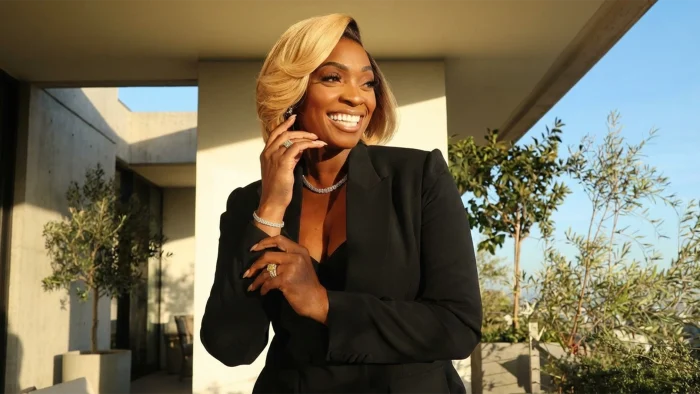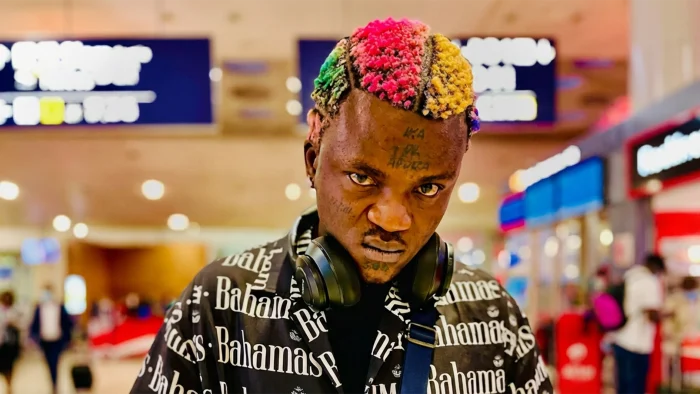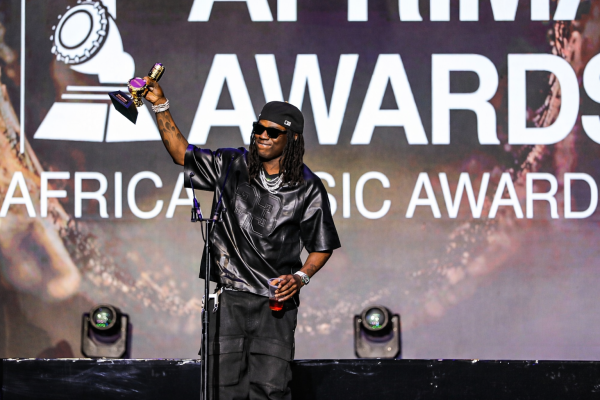- With opportunity and access to funds, I still ask why it’s not clicking,” Sharon Adeleke reflects on business success
- Ogun police investigates alleged assault case of singer portable while in custody
- FULL LIST: Rema, Burna Boy, Yemi Alade win big at 9th AFRIMA Awards
- Rema beats Morocco’s Manal as Weeha defeats Wizkid at AFRIMA
Before the docuseries, Surviving R.Kelly began airing, the iconic R and B singer had long been a subject of allegations illegal and indecent sexual relations; some of these allegations involved minors including the late singer Aaliyah.
But Kelly himself, a subject of sexual abuse as a minor always claimed innocence of these allegations.
The airing of Surviving R.Kelly unearthed damning testimonies and claims have the Chicago native a subject of a lawsuit.

His alleged sexual predatory acts are not an isolated case. Down home in Nigeria, infants and children who can barely spell penis, are violated every time. Such was the prevalence of such act that in December 2018, television anchor Morayo Afolabi-Brown said on air she could not trust her husband with bathing her daughter.
Before Afolabi-Brown’s comment, the death of 13-year-old Ochanya drew national attention for the wrong reason.
The girl had been a subject of repeated sexual abuse in the hands of her uncle, a lecturer and his son for five years.
She eventually died of complications arising from Vesicovaginal fistula.
While Andrew is currently facing the law, there are many other Nigerian children whose molesters are walking free.
The law on molestation
In 2015, the United Nations International Children’s Emergency Fund (UNICEF) reported that one in four girls and one in ten boys had experienced sexual violence before they attained 18 in Nigeria. The report states that girls aged two and above have these encounter with people they are familiar with.
The reason the statistics are grime is not farfetched. The Child Rights Act that seeks to protect the child is almost ineffective. CRA stipulates that having sex with a minor, with or without consent, is statutory rape. As good as this sounds, it is hardly veritable protection for many children who have been violated, in most cases, by people whom they trusted.

A Nigerian lawyer who pleaded anonymity tells Guardian Life that one of her cases involved a 30-something-year-old adult who raped his neighbour’s 2-year-old niece. When he was questioned by the court, the suspected rapist told the court that “his neighbour had forgiven him.”
[ad]
Instances like these are what Jekein Lato-Unah, project head, Stand To End Rape, regards as lack of sex education.
“Society has encouraged sexual violence by first teaching our sons that sex for them, is perfectly okay and ought to be acquired while shaming our girls for engaging in it.”
“The idea that women are second-class citizens, inferior to men and the likes are narratives that are constantly pushed in our various cultures and religions so of course, it will have an effect on the people.”
Is the law dead?
Section 3, Subsection 31 of the Child Rights Act prescribes life imprisonment for anyone who has sex with a minor. Yet, since its creation, not much has been achieved.
To make the matter worse, Nigeria has an abysmal rate of conviction of rapists. Between 1960, when Nigeria became independent, and 2015, there were only 18 rape convictions. Yet, the tales of defilement of minors are commonplace.
[ad]
Winifred Maduko, speaker emeritus and former national representative of Nigerian Children’s Parliament, Enugu State, explains that the limitation in the enforcement of the law can partly be blamed on the poor fundings of juvenile courts.
“Some states find it difficult to implement the Child Rights Act because of lack of funds. You know implementing also involves the state providing for the juvenile courts because you’re meant to get some judges [and] lawyers. They are meant to be paid.”
Conspiracy of silence
During the campaign for Ochanya, another ever-bothering question was brought to the fore: why do victims wait until something such as this?
In the Nigerian society where the conspiracy of silence is treated as golden and people are placed on a metaphorical high horse to pass judgments, there are doubts that speaking up is as effective.
Sugabelly (real name: Lotanna Igwe Odunze), a Nigerian Twitter user is known to the Nigerian twitter for accusing Mustapha Audu, the son of former Kogi state Governor, Abubakar Audu and the son of an Admiral for sexually assaulting her. Using Twitter as a way of exposing her accuser, Sugabelly was slapped with a libel suit filed against her by Mustapha. Although a US court later vindicated her, it showed the true nature of the Nigerian on Twitter: questions such as “what was she wearing?”, “Why did she go there” were used to counter this allegation causing her to go into isolation. Evidently, she was blamed for an offence committed against her.

More Nigerians found their voices in the wake of #MeToo movement. Using social media, more ladies came out to expose their suspected abusers. Among them was singer Maka, who exposed the pervasive sexual predation in the Nigerian entertainment industry.
“It is very easy for us young girls to fall prey to these kinda situations. All we want to do is earn a living doing what we love the most and these n**s think they can take advantage of us because we are helpless – which most of the time is true,” Maka says.
People coming to out their alleged abusers reveals the level of abusiveness that exists when it involves someone of power and authority and also serves as a testament to how actions are excused.
The other side of the coin
While minors who have been abused may not understand why they need to speak out as a part of the strategies of coping with their trauma, adults victims, who understand that speaking out can help reduce the rates of sexual predation, are sometimes hushed by the people who should have backed them to speak out.
Such was the case of Monica Osagie famous for exposing a professor of accounting at the Obafemi Awolowo University, Professor Richard Akindele, who demanded sex from her in exchange for marks.
“My dad supported my action but my aunts were of the opinion that I shouldn’t have exposed him (Akindele) because, by exposing him, I will also expose myself as well. They insisted that my action would not help my future,” Osagie told Punch.

allegedly demanding sex from one of his students, Ms Monica Osagie
Maduko shares the same thought when she says that the family fights for themselves because “if it is a child, they will not want to come out. They feel they have their family names to protect especially in Nigeria.”
“They would not want the society to know about it to protect the interest of the child. Let’s say if the victim is a female child, they hope that the child gets married to a man in the future. They feel that if that (reporting) happens the girl might not have any suitors in the future.”
The past and current situation are dastardly enough, child rights and anti-sexual abuse activists say. But they acknowledge that the future can still be salvaged. The key to that, they say, is sustained awareness.
Maduko says, “I believe there should be more awareness creation. You understand that all of these stories we hear it is not is not a case of a young person working on the roadside. It is happening in families. This is a social issue and there that should be awareness creation for everyone most especially to mothers and fathers to your own sisters and brothers. It will help protect them.”
Whereby a society falls short of educating the people on getting rid of selfish indifference, the effect of sexual abuse will continue to thrive. Maka emphasises that there is a need to speak up for these girls even when everything is at stake.
“Your reason to live should be your reason to die.”
[ad unit=2]








